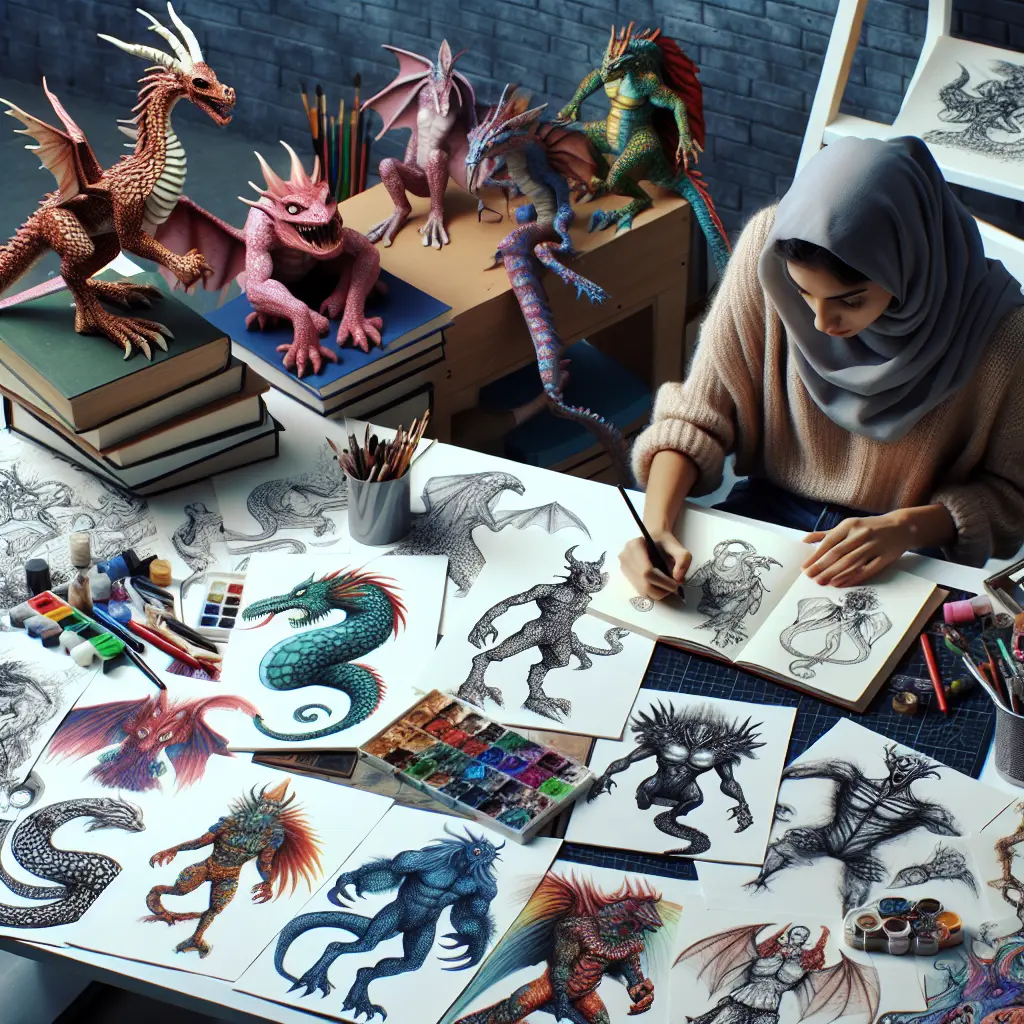
In the vast universe of Pokémon, the intertwining of vibrant character designs with deep-seated mythology is not just a creative choice but a cultural phenomenon that has captivated audiences worldwide. This intricate relationship between Pokémon character design and mythology offers a fascinating glimpse into how ancient stories continue to shape modern entertainment. In this blog post, we delve into the role of mythology in Pokémon character design, exploring the mythological influences in Pokémon and their cultural impact.
The roots of Pokémon mythology are deeply embedded in various cultures, drawing heavily from a tapestry of global folklore and ancient myths. These influences are evident in the legendary Pokémon origins, where creatures like Rayquaza and Kyogre mirror the dragons and sea monsters of East Asian and Western myths, respectively. Such myth-inspired Pokémon not only enhance the game's appeal but also enrich the player's experience by connecting them to a broader narrative heritage.
Examining Pokémon design analysis reveals a deliberate integration of mythological creatures in Pokémon. For instance, the majestic Lugia draws inspiration from the Japanese dragon Ryujin, embodying storm and sea, pivotal elements in many coastal myths. This incorporation of cultural mythology in Pokémon not only broadens the franchise's appeal but also deepens the engagement by offering layers of meaning behind each character.
The legendary Pokémon origins are particularly fascinating as they often reflect the cultural and environmental concerns of their mythological counterparts. Consider the trio of Entei, Raikou, and Suicune, who are reminiscent of creatures found in Shinto folklore, representing fire, lightning, and water, respectively. These connections highlight how folklore and Pokémon intersect, bringing ancient stories into the realm of digital entertainment.
The cultural impact of Pokémon mythology extends beyond mere character design; it fosters a global dialogue on comparative mythology in Pokémon. Players from different cultural backgrounds find common ground in discussing how their heritage is represented, leading to a richer community experience. This global conversation enhances understanding and appreciation of world mythologies, proving that Pokémon serves as more than just a game—it's a gateway to cultural education.
Mythological symbolism in Pokémon is also significant in its educational potential. Through engaging with these fantastical creatures, players—especially younger audiences—gain an intuitive understanding of themes like honor, courage, and the dualities of nature, which are prevalent in many myths. This educational aspect is subtly woven through gameplay and narrative, making learning both fun and impactful.
The inclusion of mythology in video games, particularly through franchises like Pokémon, shows a deliberate move towards creating more profound and resonant content that leverages the psychological and narrative power of ancient myths. This approach not only enhances the gaming experience but also sets a standard for how games can interact with cultural narratives.
Turning to recent updates in related fields, while seemingly unrelated on the surface, developments such as Trump’s promises regarding cryptocurrency or Kamala Harris’s engagement with crypto platforms underscore a broader theme of ancient concepts (like currency and trade) meeting modern technology—a parallel to how age-old myths find new life in today's digital games.
Furthermore, considering contemporary issues such as the political implications seen in the use of memecoins for betting on elections or the ethical considerations around digital privacy and security (as seen in AT&T’s hacker incident), we find that the world of Pokémon offers a reflective ground. It serves as a metaphor for the ongoing battle between different values and powers, much like the legendary clashes depicted in its game world.
In conclusion, Pokémon character design is not merely an exercise in creativity but a complex layering of historical, cultural, and mythological narratives that speak to both ancient and modern themes. The franchise's success lies not only in its ability to entertain but also in its capacity to educate and connect diverse audiences through shared human stories. As we continue to explore these digital realms, let us appreciate the depth and breadth of our cultural heritage mirrored in these captivating designs.
Thank you for joining me on this exploration of mythology's dynamic role in shaping one of the most beloved franchises in video game history. May your adventures be epic and your understanding of mythology enriched through the world of Pokémon.
Simon Peterman